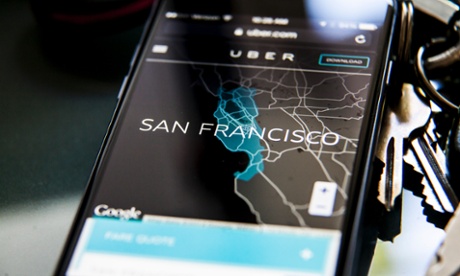
Taxi-app firm Uber has been fielding plenty of criticism this month, after one of its executives’ claims that the company might plough money into investigating its critics within the media were reported, then another was caught accessing the personal data of a journalist to make a point.
What lessons can be learned from the controversy? The American Civil Liberties Union has a few thoughts, which its senior policy analyst Jay Stanley has set out in a blog post:
“First, it’s a reminder that whenever we allow an institution to collect information about us, we expose ourselves to certain dangers, including the danger that our information will be misused.
It’s also a reminder that abuse is a potential problem not just with government but also with companies, which like government agencies have their own incentives and interests and enemies, and if they can gain power viainformation, they will do so unless something is stopping them.”
But Stanley also criticised Uber for the “amateurish” nature of its privacy violations, suggesting that the company “hasn’t yet begun to understand the power and importance of the data they collect, and the trust they need to earn in their handling of that data”. Ruthless, perhaps, but also naive, suggested Stanley.
“The lesson, once again, is that ultimately the best privacy protection comes from not having your data collected in the first place.”
What do you think? Will this affair ultimately prove positive if Uber – not to mention other startups of all stripes – learns from it? Or will the incentives to collect as much data as possible then, when it’s sitting there, fall prey to the temptation to misuse it remain? The comments section is open for your thoughts.
What else is bubbling in the technology world? Some links to discuss:
eBay’s plans for ‘magic mirrors’ in real-world stores
Wired has an interesting piece on how eBay is planning to reinvent shopping in the real world. Stores will “recognise” users of their mobile apps, track them as they wander around the shop, and sport “magic mirrors” to recommend accessories for whatever they try on. Smart or spooky? Or, indeed, both?
Opera tests subscription-based app store
All-you-can-eat entertainment is familiar now from the worlds of music (Spotify) and video (Netflix), and it’s starting to roll out in the world of books too. What about apps? Opera has unveiled its Subscription Mobile Store, which it wants to launch for mobile operators. “For just one weekly payment, customers can download as many popular, premium apps as they like...”
Anita Sarkeesian is ‘just getting started’
Despite GamerGate harassment, the Tropes vs Women in Video Games creator is undaunted. “People are talking about women and games seriously; people are taking the critiques seriously. It’s been a huge shift. This discussion is becoming more mainstream,” she tells Businessweek.
Rufus Wainwright launching a subscription app
Amid the ongoing debate about Spotify and musicians, what about paying a subscription for individual artists? Rufus Wainwright is giving the model a try: his official iPhone app will charge £2.49 a month “for direct interaction with Rufus and to receive exclusive content”.
Another way to deal with rape threats online
Games reviewer and broadcaster Alanah Pearce: “Sometimes young boys on Facebook send me rape threats, so I’ve started telling their mothers.” The reply she got from one of them is priceless.
Sometimes young boys on Facebook send me rape threats, so I've started telling their mothers. pic.twitter.com/0Cbs81eXiE
— Alanah Pearce (@Charalanahzard) November 28, 2014
What else? Fire away with your thoughts on the stories above, as well as other links you think the community would be interested in checking out.

